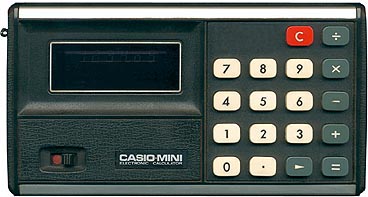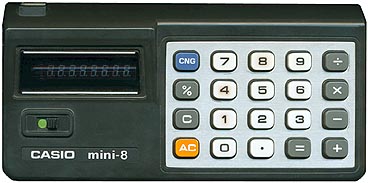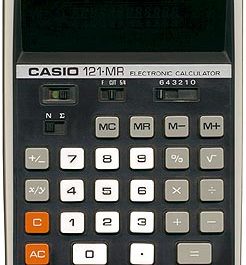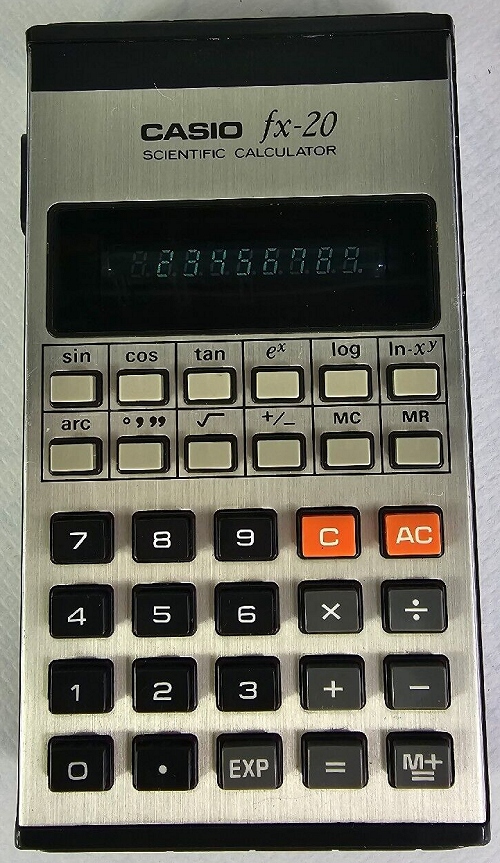
The Casio FX-20 was an early scientific calculator released in 1975-1976. It had a sleek, modern design for the time with a brushed aluminum front panel and black plastic body. The calculator measured about 74.5mm x 132mm x 24.6mm and weighed 124g without batteries.

The FX-20 was powered by two AA batteries or by an optional AC adapter. Battery life was around 20 hours with alkaline batteries or 8 hours with carbon zinc. There was an on/off switch on the right side above the display.
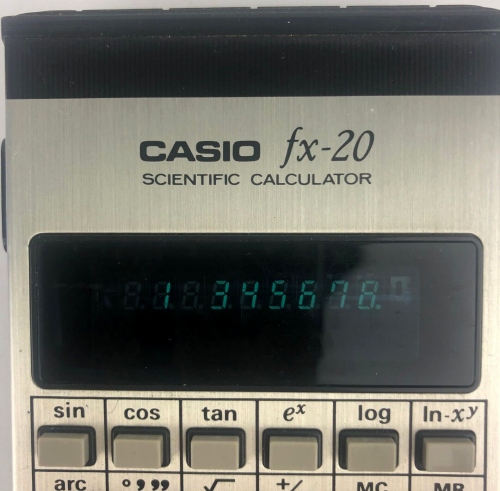
The calculator featured an 8-digit vacuum fluorescent display plus a 9th digit for indicating negative numbers. The digits were a “small zero” design that Casio used to help distinguish numbers if some display segments failed.
For features, the FX-20 offered the four standard math functions plus square root, sign change, powers, trigonometry, logarithms, and sexagesimal conversions. It had a three register memory and both an 8-digit standard display mode and 6+2 digit scientific notation.
Internally, the FX-20 used a Hitachi HD3678B microprocessor along with a custom mixed-signal chip for the display driver. The keyboard connected to the main circuit board via a ribbon cable. There was also a small secondary board for the AC adapter and display voltage generation.
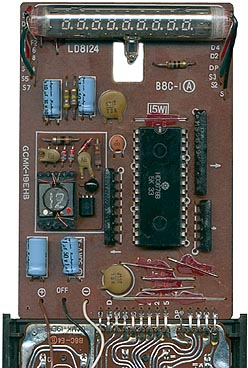
Here are some notes on the FX-20’s logical operation:
- The C key clears the current number entry, AC clears everything
- Overflow is suppressed – entering a 9th digit does nothing
- Constant values invoked by double pressing an operator
- No indication of memory usage – user has to track it
- Negative sign pushes left, losing 1 digit in scientific mode
- Overflow and divide by zero show E error and lock up
- No negative square roots
- Scientific mode limits >6 digit entries
- Sign change works mid-entry
- Scientific range: 10^39 to 10^-39
- M+= adds displayed values into memory
- Sexagesimal conversion from DMS but not reverse
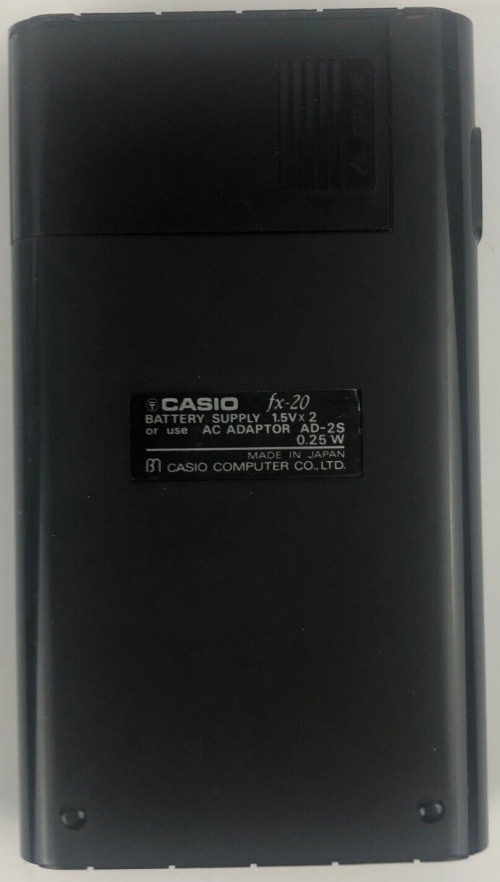
The Casio FX-20 was an early scientific calculator with good build quality and features for the mid-1970s. It established the layout and design Casio would use well into their LCD calculator era. The FX-20 had some limitations around memory feedback, error handling, and input ranges compared to later models but was still an innovative product for its time.
